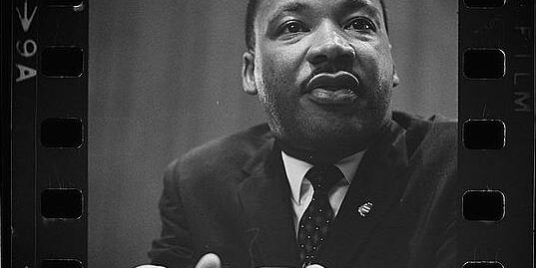The following post was written by Kee Tobar, Director of Racial Equity and Inclusion at Community Legal Services of Philadelphia.
Let us remember Dr. Martin Luther King Jr.’s comprehensive dream as we celebrate his legacy. As the Director of Racial Equity and Inclusion at Community Legal Services of Philadelphia, I realize that so much of Dr. King’s insights are relevant to our work today. Dr. King’s legacy goes far beyond a snippet of his “I Have a Dream” speech. As advocates pursue the maintenance and expansion of social safety nets, housing justice, and the eradication of barriers to employment, let us remember Dr. King not only as a nonviolent pacifist seeking equality, but also as a radical pursuer of economic, social, and racial justice.
In a time of great wealth inequality, as we advocate for the expansion of social safety nets, let us not forget that Dr. King advocated for a universal basic income for all people. Let us look at Dr. King’s work with the Chicago Freedom Movement as we think through analysis and approach to the ever-growing issue of insufficient, under-repaired, and unaffordable housing that continues to wreck the lives of poor people in this country.
In working to eradicate barriers to living-wage employment, let us remember that included in Dr. King’s appeal for a universal basic income was not only the guarantee of one hundred percent employment for all, but also the guarantee of a middle-class income.
As we advocate for people living with a severe disability, whilst thinking through the impact of long-term Covid-19 medical injuries on the greater population’s future employability, with a backdrop of a country seemingly concerned more with sustaining comfort and consumption than public health, let us be reminded of Dr. King’s critique of a society who places more importance on exploitation and consumption than on the viability of its people.
As advocates concerned with eradicating poverty and improving the lives of low-income people, Dr. King’s work should serve not only a relic of a good man and citizen, but as a guiding light as we grapple with the issues of today. We honor Dr. King by engaging with an intersectional analysis of racial and economic equity, thereby uplifting his comprehensive dream.






